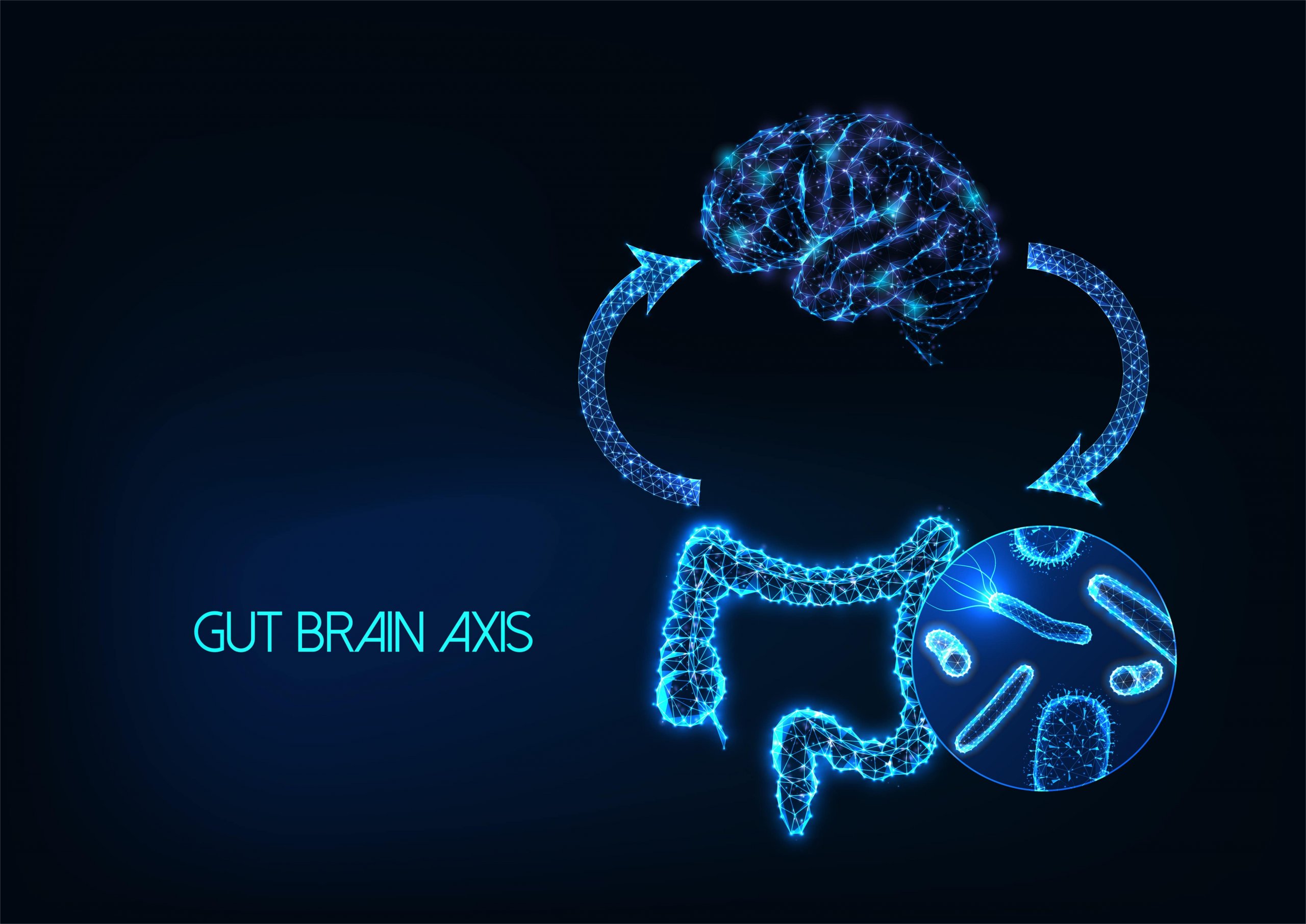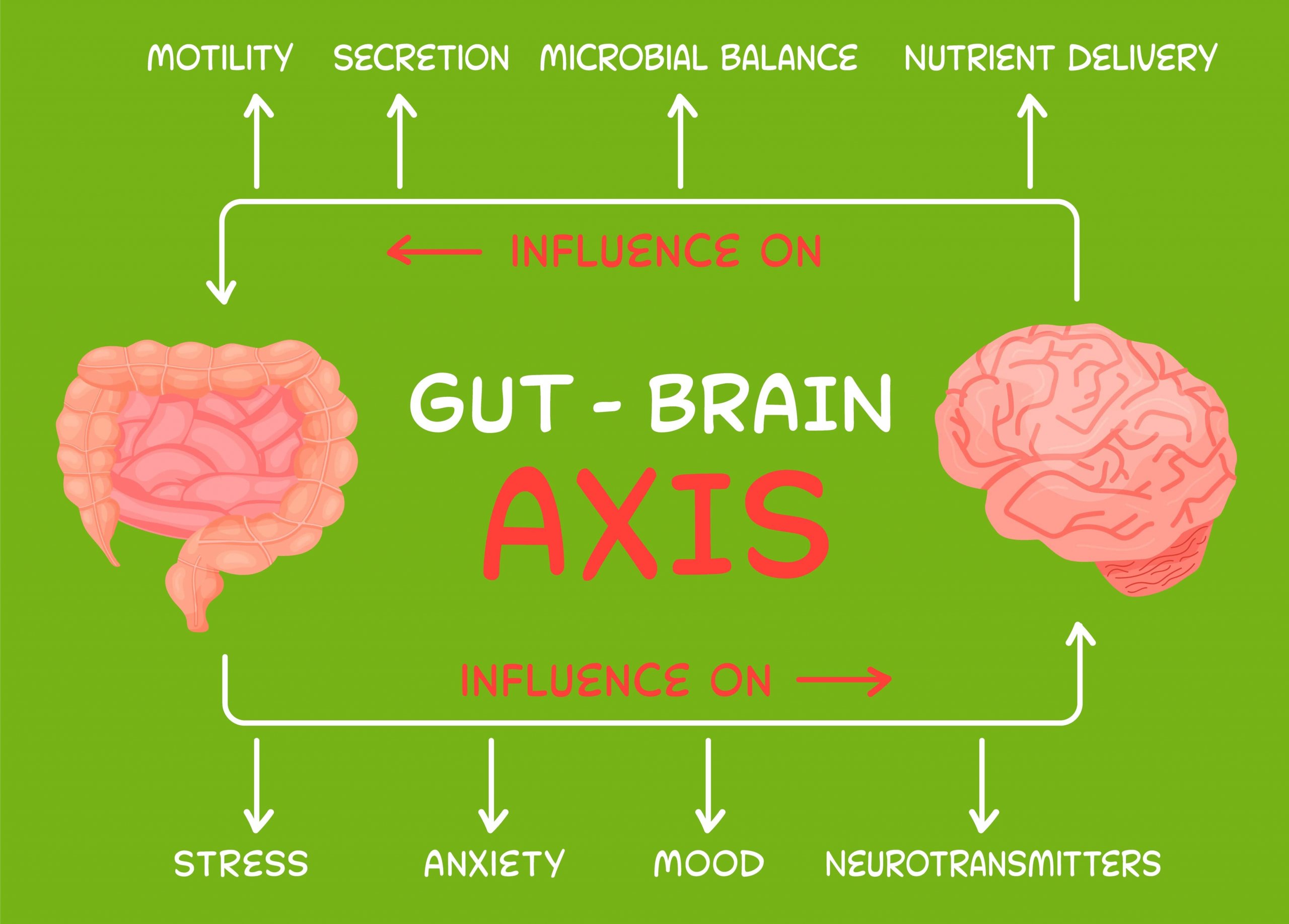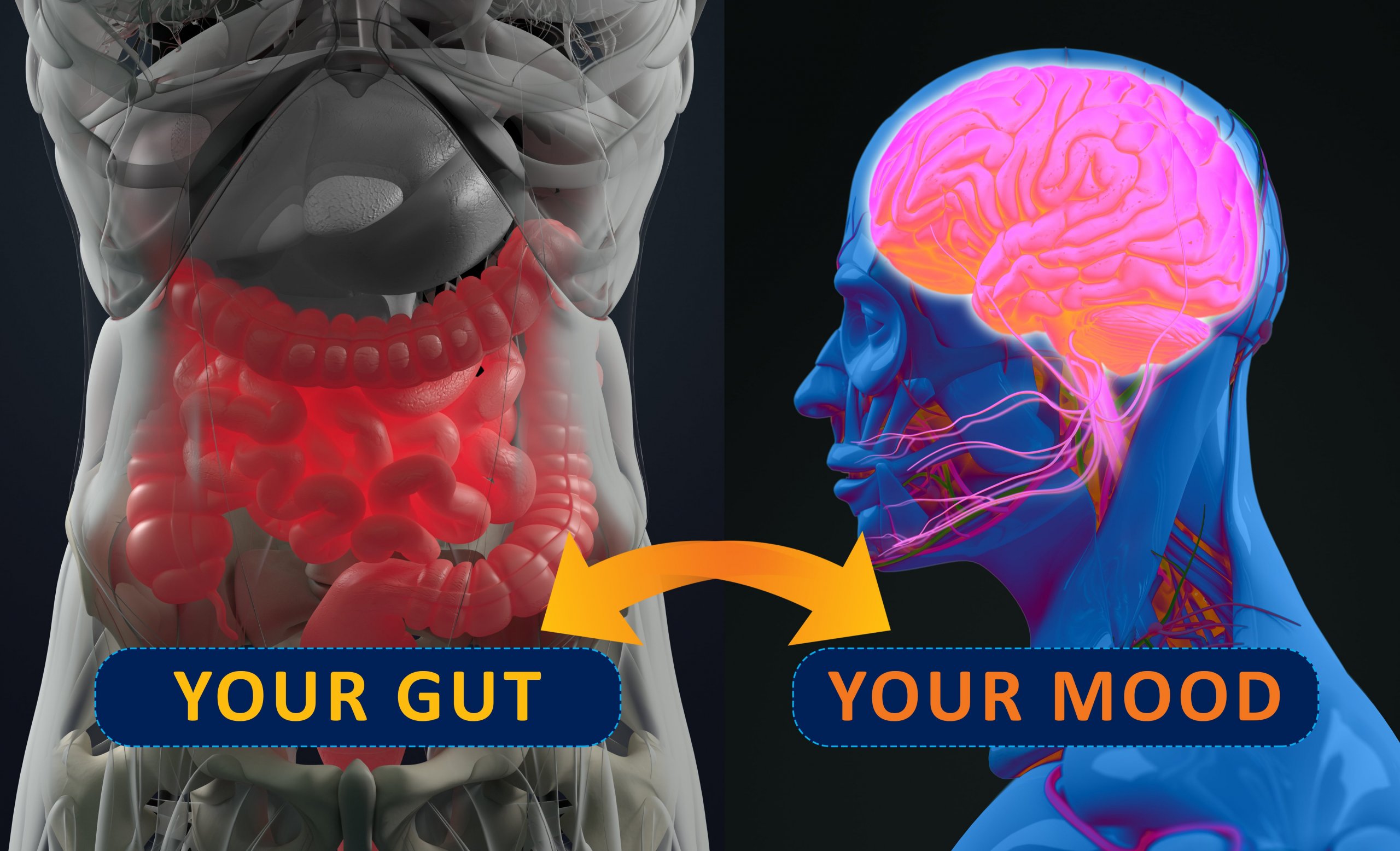READ TIME: 4 MINUTES —
Did you know that the neurons and neurotransmitters in your gut rival those in the brain? Some have actually called the gut the Second Brain, and there’s even an argument you could make to call it the first. The gut is simply that much of a command center for human health.
This much is clear: the gut is a truly powerful organ. It senses all nutrients coming into the body and then coordinates the body’s response to these nutrients. Indeed, there are even smell and taste receptors throughout the gut, which link directly to the brain along a two-way information superhighway called the vagus nerve. [1, 2, 3]
Which leads one to wonder: should we maybe rethink the phrase ‘what happens in vagus, stays in vagus’?
The Gut-Brain Axis

The gut and the brain are very closely connected. In fact, there’s a term for this called the gut-brain axis, and it’s just not limited to a connection by nerves alone. [4] The connection is also forged by the molecules and hormones produced by microbes living within — and cells lining — our gut.
The gut microbiome is responsible for producing neurotransmitter precursors and factors — like short chain fatty acids — that filter across the gut barrier into our bloodstream and then across the blood brain barrier into our brain. In other words, your gut and your brain are super closely connected. When you improve your gut health, you can improve your brain health!
A Functional vs Dysfunctional Gut-Brain Axis

The gut-brain connection is real. But what does this mean in practice? What does a dysfunctional gut-brain axis look like, and what can folks do to restore it to health?
A dysfunctional gut-brain axis can manifest as sleep disturbances, mood disorders (like anxiety and depression), and low energy.
In one animal study, providing mice with butyrate (a metabolite produced by intestinal bacteria) improved sleep. [5] You’ve probably heard that you can improve your sleep through certain environmental factors like decreased light and sound exposure as well as lower room temperature. But this study suggests you can also improve your sleep from within!
Basically, butyrate is shown to increase non-rapid-eye movement sleep by as much as 70%. One of the most efficient ways to increase butyrate is through your diet. It’s produced when gut bacteria feeds on — and ferments — certain plant-based fibers, like resistant starch. So, if you nourish your gut, then you can enhance your sleep. And if you enhance your sleep, you can improve your brain functionality. With the gut-brain axis, it’s all interconnected!
What about mood? Much of the work here has been done in animal models of disease where mice have a condition that mimics depression and anxiety. Giving these mice specific probiotics and/or prebiotics is linked with better gut health. In turn, better gut health can lead to real changes in behavior and improvements in mental health (or, at least the animal equivalent of improved mental health).
What’s fascinating is that when the vagus nerve is disconnected, these therapies in animal models don’t work. Which means the vagus nerve connection is a majorly important way — though of course not the only way — that the gut communicates with the brain. [6]
Better Bacteria for a Better Mood (and More)

Beyond animal-based models, there is also a developing field of psychobiotics where specifically chosen probiotic organisms are being evaluated for improving depression and anxiety in people.
Carefully conducted studies have shown that probiotics can improve mood and even alter the way the brain looks on a functional MRI. [7]
Additionally, studies in prebiotics (the food sources for probiotic microbes in your gut) are still in their nascent stages, but there are some fascinating early signals.
One recent study linked consumption of fruits and vegetables with “lower worries” and a higher “joy across the lifespan.” [8]
Another study found that a diet high in fiber and low in saturated fat was associated with better sleep. [9] And we all know how much better we feel after a good night’s rest!
Oh, and if you’re wondering about satiety and energy, high-fiber diets (aka, those with plenty of prebiotics) are also linked to improvements here as well. Studies have shown that fiber can influence how hungry or full we feel. It can also influence energy intake and even improve how we perceive energy psychologically. [10] More energy = more likelihood of exercise. More exercise = countless emotional and mental health benefits. [11]
Eat Better, Feel Better

Remember the age-old adage “you are what you eat”?
Well, in the vein of revisionist aphorisms, it’s equally true that “you feel how you eat”! So eat well. Because feeling well is kind of key for improving overall mental health.
Certain types of fiber, like resistant starch, can help. This plant-based powerhouse is scientifically-shown to grow a healthy microbiome and contribute to improved outlook on life. [12]
So, if you’re looking to strengthen your gut-brain connection, then consuming more resistant starch is an easy and efficient way to start.








